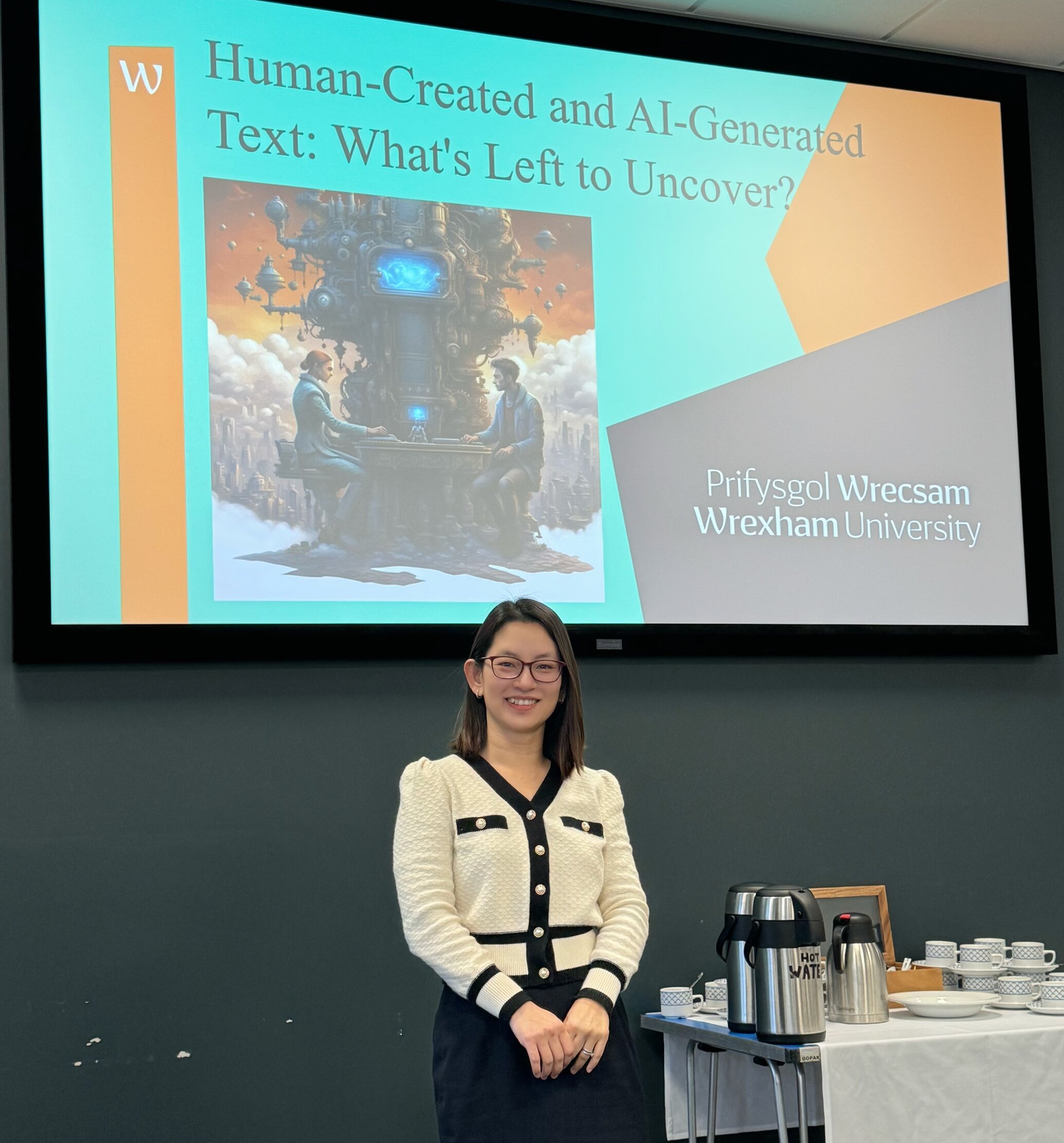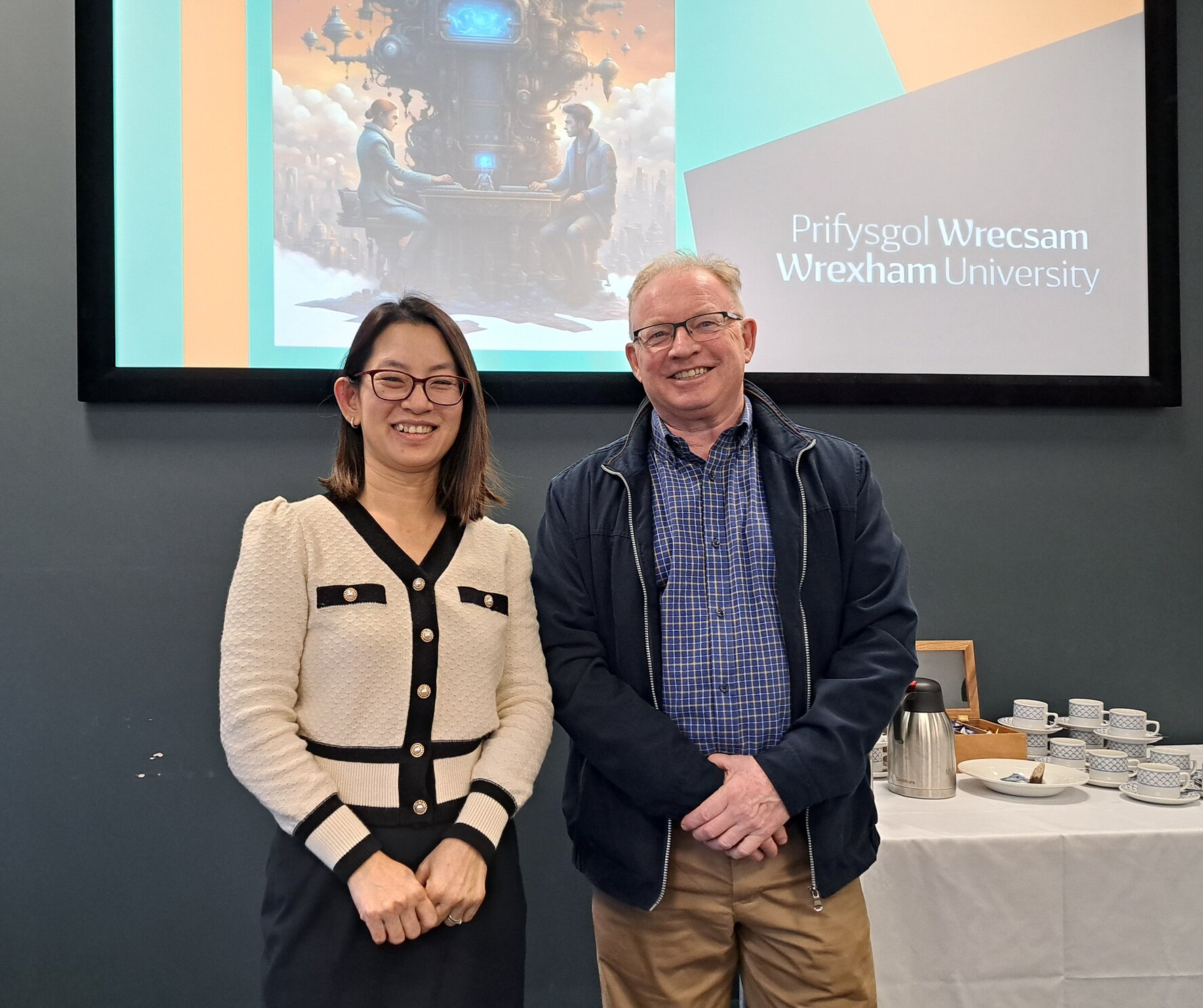FAST Research Seminar - Computing

At the beginning of March, Dr Phoey Lee Teh delivered the FAST-hosted research seminar, chaired by Dr Rob Bolam.
Phoey talked about two topics within Computing, starting with, ‘Human Created and AI-Generated Text: What’s Left to Uncover?’ The topic is of great interest to the community at present with concerns about AI-related fraud or academic malpractice. However, Phoey showed us that AI could work in humans’ favour by detecting itself and therefore whether a human has used it for fraud or malpractice.
Phoey introduced us to the concepts of Large Language Models (LLMs) and machine learning, where the machine is trained by humans based on the prompts they enter into the machine. One common example is ChatGPT, which has been in circulation for several years, and its latest version is now a chargeable package. Some communities and academics have embraced the use of AI, for example, in Education, where it can enhance learning, aid understand, and even reduce workload, so long as it is used ethically, and credit is given for when it is used. Nevertheless, these LLMs cannot provide us with any new data, and ChatGPT only has a database going up to 2022.
Phoey proceeded to outline their research on AI-generated text and found that it was distinguishable from human-generated text in a variety of ways: ChatGPT provides structural responses, maintains an organised style, is long and detailed unless you specially request brevity, is neutral on sensitive topics, repeats phrases, uses predictable language, and the biggest limitation is it cannot define human sentiment. AI learns through reinforcement of human feedback.

Phoey’s next topic focused on a brief overview of a systematic review of machine learning in recommendation systems over the past decade. Recommendation systems analyse data using algorithms (user behaviour data, past purchase or preference data) to make tailored product or content recommendations to users.
Further developing processes for recommendation systems has been a hot topic for computer scientists over the last 10 years, with the aim of enhancing the analysis of large and complex datasets. Phoey’s research reviewed the approaches used in recommendation systems, identifying the major approaches whilst also reviewing the utilisation of the various machine learning techniques.
Results demonstrated that the ability to divide user datasets into smaller, more manageable groups can speed up algorithms and enable greater comparisons between the groups. Phoey concluded the seminar by detailing the various algorithm and measurement approaches that can be combined to yield the most effective recommendations.
Thank you Phoey for that fascinating session - perhaps the Will Smith movie, IRobot, is in the distant future after all! Look out for the last in the series of research seminars this academic year on 10 April, which is a collaboration session between Art+ and Science.